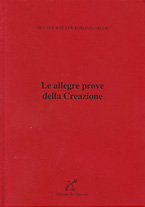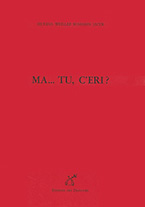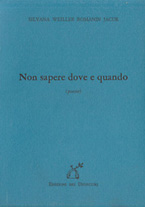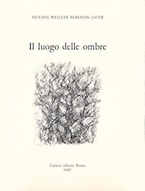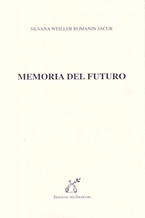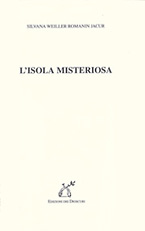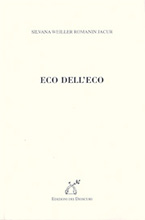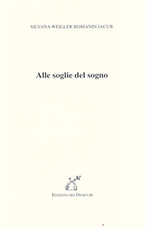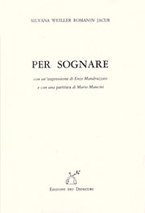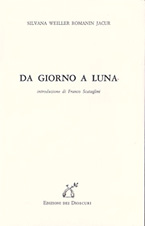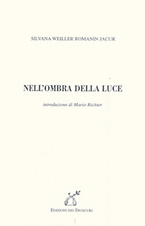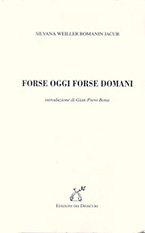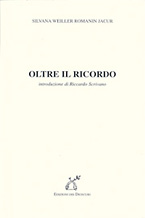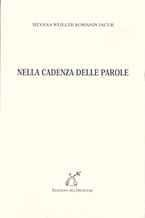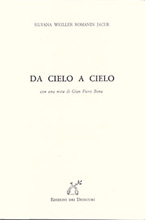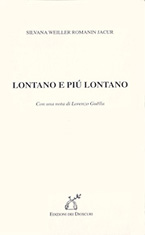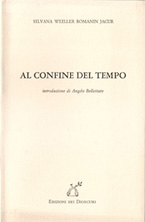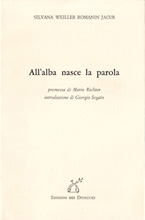The essential word.
S. Weiller began writing and illustrating books from the early 50’s but it was only in the early eighties that she began a continuous and prolific poetic production which she continues.
Her poems fasten to the page and to memory like a long thread which unravels until the final line, untangling thoughts and feelings, a mixture of sensations, memories and reflections. And this river of images carries within it the precise knowledge of the weight of words, words to which she entrusts herself, willfully, so she can be led elsewhere, anywhere, on a voyage that transforms into a dream with no suffering or deceit. In a never-ending search for peace words, painful and rough, tremulous and concise, rise up. And the poem, with brief and agitated brushstrokes, becomes an innocent, melodic breeze transforming into a discreet and barely whispered reflection of the soul. The linear words, the brief and syncopated prose (at times falling, at times suspended, rarely beating), the verses (pictorial symbols of different yet similar wording) seem to fold muted and melancholic into a spasmodic search for an inner space where one can rediscover a suffused and friendly glimmer of melancholy.
The varied use of rhyming is the delicate musical support of a fluent conversation, while the thread of the metre is characterised by irregular uses of a sinewy flow, the syntax rolls, stops and restarts. The vocabulary, educated yet basic, sways continuously between natural figurality and transnatural allusiveness.
The poems express movement, a search for an awareness of the transitional, of mystery and of the fears which afflict the human condition. They discuss time and its relentless flow, the mysterious sense of nothingness, and of transiency forming/shaping images of emptiness, of silence which in an essential and rough style, void of any concessions to rhetoric, find the best way to reach a pure form.
Mario Richter in “All’Alba Nasce” writes:
“It is a poetry which is to the opposite of anecdotes and the realistic or impressionist description. Nothing is given to the easy effects of folklore, of real colour. The daily aspects of reality which bore us simply become the elements of a different reality which surprises and renews us … And the words, spreading out, become denser, harsher while the poetry takes us to acknowledge with many new emotions the anguish of a desperate hope, the depths of the universe and history, and the eternal questions of life. These are visions which create a unique meeting of space and time, at a time which consumes us and makes us bow to its “curved mystery”. So the universe we see also becomes the universe we feel inside, which pushes us from within, which transforms while time makes us/creates us”.
And G. Segato adds:
“Her word is always polished in form, sound and meaning. Listening and vision tend to coincide: an inner vision which is sound, rhythm, memory, song, and at the same time a ring, a multiple echo of articulated sound.”
On 9 June 1991 Elio Filippo Accrocca in a letter to Angelo Bellettato wrote:
“It’s a poetry within the “boundary”, within the line which belongs to time (rich in silence and in words) and draws meaning from distance, from the presence of shadows and doors, tassels in a mosaic which is not only lyrical but also existential. And within it promises and days of distant, yet existing questions are born. Precisely like words which are amplified by the deep meanings of existence, of daily life. [...] Word and poetry of agreements and disagreements, nuances and agglomerates, hitches and revivals, just like life expects everything from all of us, poets and non-poets, the privileged and the common, along hidden and popular roads of humanity which surround us and hold our breaths”.
S. Weiller, with words and colour, seems to finally conquer a dimension of continuous and homogeneous space, where every background colour hints to an inner vastness, where the rigour of form and vocabulary intertwine magnificently into emotions which express the unspeakable, the transcendental, the divine.
